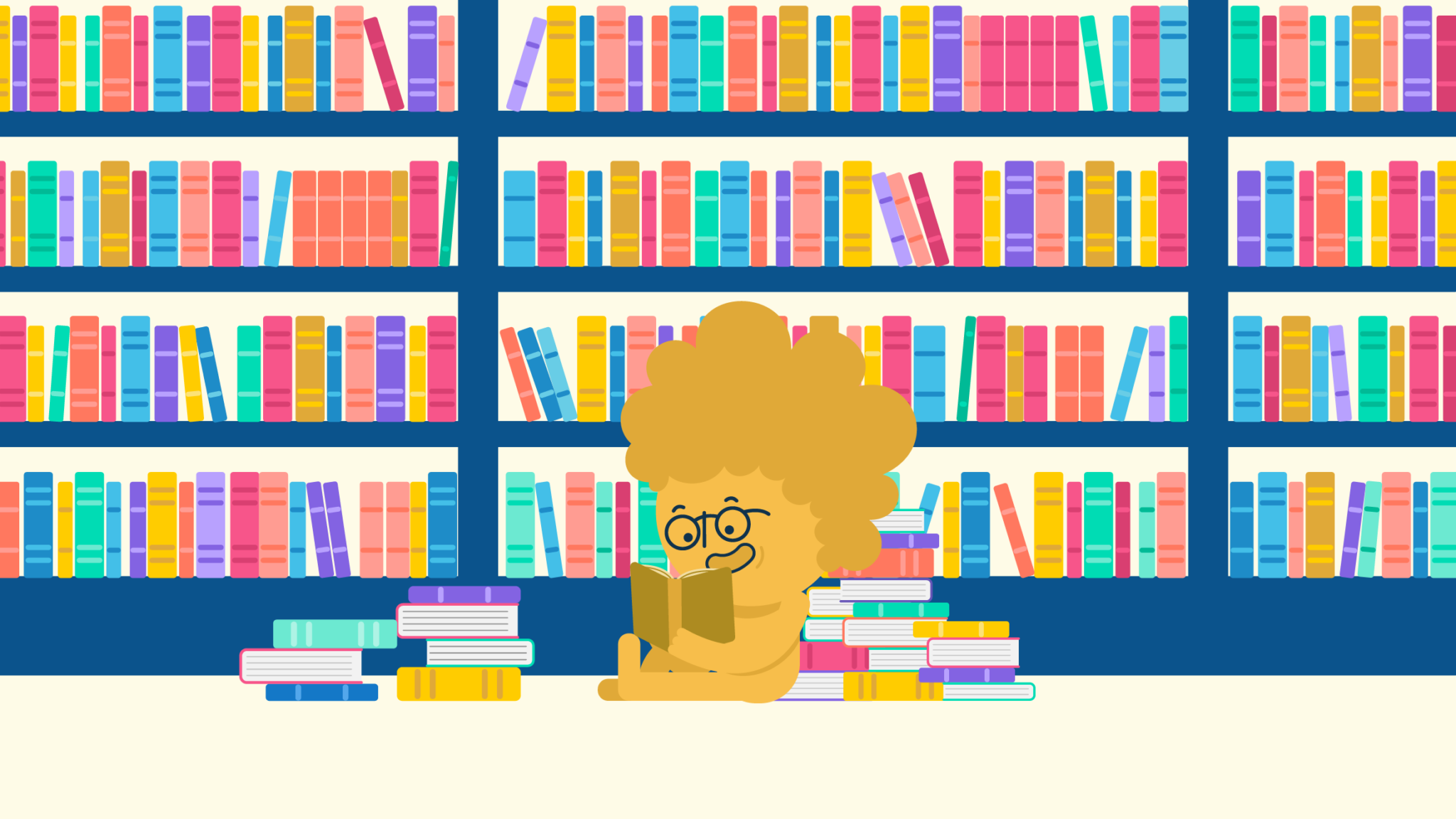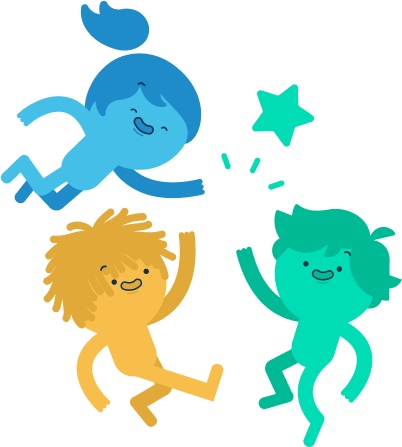This post may contain affiliate links. When you buy through links on our site, we may earn a small commission at no additional cost to you. StudySmarter aims to support independent bookshops.
Defining the Two: Fiction vs Nonfiction Books
As I descend into the endless spiral of posts on the SuggestMeABook sub on Reddit, I am always surprised by the number of people asking for nonfiction suggestions. As a stalwart fiction fan, I tend to fall into lazy thinking and assume that people read books for their fictitiousness. All that while forgetting that I read at least an equal number of nonfiction books for my studies!
And therein lies the difference. Fiction books are, well, fictional. They can be set in conventional reality (to borrow a term from Tolkien), but that doesn’t mean they are real. They borrow some settings from conventional reality, even people at times, but the events and characters are, for the most part, not real. On the other hand, nonfiction books make a solid and honest attempt to present facts and accurate portrayals of events, persons, and discoveries. And all of those come from the real world.
Types of Nonfiction Books
When one talks about types of books, usually they refer to genres or specific characteristics that bind numerous books (think fantasy books or women’s fiction). Nonfiction genres are just as comprehensive and all-encompassing as they are in fictional works. Some of the most popular include:
- History
- Biography
- Academic books and journals
- Travel guides
- Cookbooks
- Philosophy
- Guides and self-help books
- Reviews and commentary
- Journalism
You’ll notice that I’m not listing autobiographies and memoirs in the second category, even though they do, at least technically, count as nonfiction books gathered under the umbrella term ‘life writing’. Arguably, self-assessments, writing about one’s life from memory, and describing events from a single (subjective) perspective are not the most reliable ways of accounting for events. To be frank, people lie, and there’s enough evidence about people’s faltering memory, the influence of the effects on how we remember things, and the choice of words that can make one’s life more ambiguous.
Either way, the genres listed above should indeed be true to life in their writing. Now that we’ve settled that, let’s look at some of the best nonfiction books out there.
Learn More about the World with History Nonfiction Books
It can hardly get more straightforward than this. Unless, of course, you want to awaken the postmodernist in me and have me remind you that history, much like anything else, is presented in certain ways and favours certain perspectives. But let’s assume that these books are as objective as they can be:
- Killers of the Flower Moon: Oil, Money, Murder and the Birth of the FBI by David Grann. The name says it all. In the 1920s, the Osage family discovered oil on their land in Oklahoma, and, as you can imagine, they became filthy (should I say oily) rich. What they weren’t was careful, and their flaunting of newly attained money drew a fair share of attention, resulting in over 20 murders. The new investigation agency FBI took on the case with an undercover team; the rest is history.
- The Immortal Life of Henrietta Lacks by Rebecca Skloot. Henrietta Lacks was a poor tobacco farmer in the American South – on the very same land where her enslaved ancestors had worked. In the 1950s, she visited the Johns Hopkins hospital, where it was discovered that she had cervical cancer. Without her knowledge, a sample of her cells was taken to be studied, only to show that they doubled in numbers at immense speed. In fact, her cells are still alive today! Henrietta Lacks’s cells revolutionised medicine and cancer research, and yet, no credit was given. This book studies the inhuman treatment of Black patients back in the day, social injustice, and the indisputable contribution this woman gave to science.
- The Devil in the White City by Erik Larson. Welcome to the 1893 Chicago World Fair – the place where all modern inventions vie for your attention (and funding). What could possibly go wrong? Some might say a mass murderer could throw a spanner in the works, but what is he even doing there? This novel is full of life and detail, along with extraordinary events that may just make you wonder if it is nonfiction after all.
- Square Haunting by Francesca Wade. This biography covers the time between the two world wars in London. A story about five women who revolutionised literature, this book is all about giving credit where it’s (over)due.
- Maus by Art Spiegelman. Although allegorical, what with mice and all, this brilliantly haunting graphic novel tells a very real story of the rise of Nazism, the Holocaust, and the plight that ensued.
Let’s spice up the list with some honorary mentions:
- How the Irish Saved Civilization: The Untold Story of Ireland’s Heroic Role from the Fall of Rome to the Rise of Medieval Europe by Thomas Cahill
- A Short History of Nearly Everything by Bill Bryson
- Chasing the Sea: Lost Among the Ghosts of Empire in Central Asia by Tom Bissell
- The Shaman’s Coat: A Native History of Siberia by Anna Reid
- Factory Girls by Leslie T. Chang
You don’t feel like reading? Listen to those books instead on Audible.
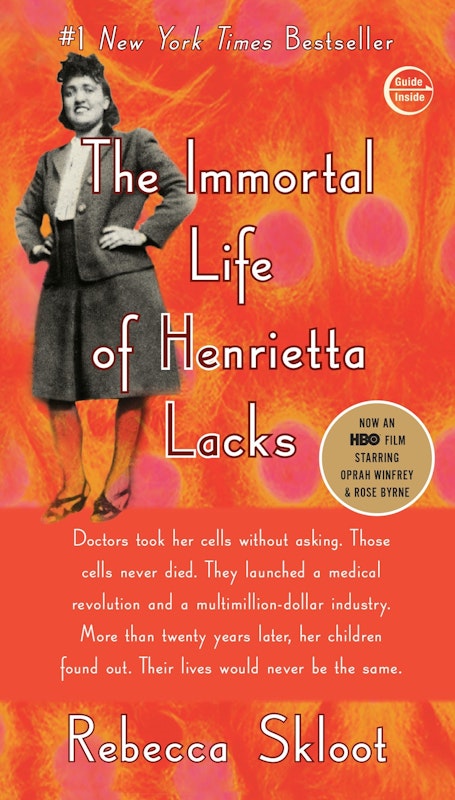
Science Nonfiction Books for Curious Minds
Scientific discoveries are what led to any progress, but despite their importance, we’re often unaware of the story behind them. Check out these fabulous books to illuminate some of your doubts and questions:
- The Gene: An Intimate Story by Siddhartha Mukherjee. Mukherjee weaves an accessible yet supremely informative story about the inner workings of our genes. While travelling across centuries among various conceptions of genetics, this book also raises the question of ethics when working with the human genome and the issue of personal and collective identity.
- Sapiens: A Brief History of Humankind by Yuval Noah Harari. To understand who we are, we should investigate history, society, and civilisation, which is what this book does in a gripping and readable way.
- Entangled Life by Merlin Sheldrake. Can you understand life from the perspective of fungi? This book proves that you can!
- The Rise and Fall of the Dinosaurs: A New History of a Lost World by Steve Brusatte. Everyone should always read more about dinosaurs. And when you’re done, you can read some more in this amazing book that traces dinosaurs’ history and biology from the first time they walked the Earth until their demise.
- The Science of Can and Can’t: A Physicist’s Journey Through the Land of Counterfactuals by Chiara Marletto. Usually, physics describes the laws of nature i.e. what must happen. But what happens when we consider all the possibilities? We get a series of counterfactuals, which Chiara Marletto examines in this unusual read.
And when you’re done with these, you should, by all means, expand your horizons a bit more with:
- Astrophysics for People in a Hurry by Neil deGrasse Tyson
- The Soul of an Octopus by Sy Montgomery
- Foodology: A Food-lover’s Guide to Digestive Health and Happiness by Saliha Mahmood Ahmed
- Mysteries Of The Quantum Universe by Thibault Damour and Mathieu Burniat
- Inferior: The True Power of Women and the Science That Shows it by Angela Saini
Classic Nonfiction Books That Everyone Has Heard of (But Not Many Have Read)
Just like there’s a series of classic novels that everyone has tried to read but hasn’t finished (Ahem, Gulliver’s Travels for me), there are nonfiction titles that sound familiar but maybe just a bit too daunting to look into:
- Walden by Henry David Thoreau. Sitting in a forest and pondering life’s great questions may sound a bit dull, but there’s so much more in Thoreau’s writing, especially about how conservative the South is. Reflecting on simple living, Walden also considers the great questions of civilisation, history, and human nature.
- The Prince by Niccolo Machiavelli. Understood as referring to Cesare Borgia, this book is more or less the foundation of the notorious ‘the end justifies the means’ maxim. Are you willing to find out, or will you be seduced by the dark side? I do hear they have cookies.
- A Room of One’s Own by Virginia Woolf. An essay and a thought experiment, A Room of One’s Own plays with the idea of Shakespeare’s lost and equally talented sister who was mistreated by history because of her gender. An excellent proto-feminist treatise on the position of women in society.
- The Fire Next Time by James Baldwin. Just in time to celebrate Black History Month, Baldwin’s bestseller gives voice to the growing Civil Rights movement, outlining the outrageous legacy of racism and the steps to counter it.
- Silent Spring by Rachel Carson. There came a moment in history when we had to awaken to the reality of global warming and our environmental impact on the planet. That moment was the publication of this book in 1962. The incredibly perceptive account of the chemical industry and the misinformation it spreads launched the environmentalist movement and gave rise to a series of studies and motions for change.
If you’re really looking for classical classics, don’t forget to read:
- The Republic by Plato
- The Social Contract by Jean-Jacques Rousseau
- The Travels by Marco Polo
- The Autobiography of Benjamin Franklin by Benjamin Franklin
- A Vindication of the Rights of Woman by Mary Wollstonecraft
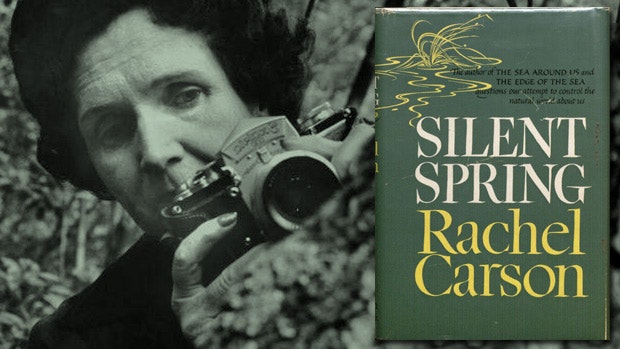
A Few Short Nonfiction Books to Ease Yourself into the Genre
As I said at the beginning, some people are just not that into nonfiction books. While that is perfectly OK, you can try some of these shorter books if you want to test the waters:
- What I Talk About When I Talk About Running by Haruki Murakami. Already world-famous for his magical realism, Murakami speaks about his personal running regime, jazz, writing, and life in general in this short biographical note. Spoiler alert, there’s much more to his marathons!
- A Briefer History of Time by Stephen Hawking. Well, his Brief History was apparently not brief enough for everyone, so Hawking condensed some bits of information into this compelling book. Learn more about the science and nature of time in this complex but still readable treatise.
- Fear and Trembling by Soren Kierkegaard. Now’s the time to find out what all that hype about Kierkegaard is as he ponders philosophically on the story of Abraham. This is a reminder that, yes, Abraham is indeed the person asked to sacrifice his son to prove his faith.
- The Origin of Others by Toni Morrison. What makes people construct Otherhood? Toni Morrison, a Nobel laureate, ponders on questions of race, class, mass movement, and the unfortunate tendency of humans to ‘other’ those different from the perceived majority.
- Common Sense by Thomas Paine. Whether you want a revelation or someone has called you insane recently, Paine’s Common Sense is an excellent reading choice for you. It is precisely this pamphlet that sparked the American Revolution and set a massive historical change into motion.
And because these bookies are particularly short, make sure to get a few extras for when you’re done:
- Media Control: The Spectacular Achievements of Propaganda by Noam Chomsky
- Beyond Good and Evil by Friedrich Nietzsche
- Climate Change: A Very Short Introduction by Mark Maslin
- Israel/Palestine: How to End the War of 1948 by Tanya Reinhart
- Quantum Physics: Illusion or Reality? by Alastair Rae
The (Totally Subjective) Best Nonfiction Books
There is no such thing as the best-anything book – any ranking is highly subjective. Still, I’ll cheat my way through that barrier to present just a few extra titles (that’s what you get when you deal with a literature major 😉).
- God: An Anatomy by Francesca Stavrakopoulou. Ever wondered about the longer version of the history of the monotheistic vision of God? Long before God, there was a pantheon led by El, worshipped in Israel and Palestine. El’s son (one of the 70 at least), Yahweh, fought for domination and evolved into the deity lots of people recognise as the only one today. And all that centuries before the Bible appeared. An excellent book for understanding the nature of religion and belief.
- The Psychology of Stupidity by Jean-Francois Marmion. It’s not easy being clever, but what’s behind the other thing? Written with great insight, this book discusses how media makes us all stupider and what there is to gain from arguing with someone who fails to recognise a different perspective.
- The Colour of Madness by Samara Linton and Rianna Walcott. What is there to do when someone is declined medical treatment based on the colour of their skin? An account of mental health issues, racism, and the never-ending string of discriminatory practices, this book is a collage of essays, personal stories, memoirs, and art. It is meant to bring solace to those who have experienced the same injustice.
- In Defence of Witches by Mona Chollet. Imagine living in the Middle Ages and being burned alive for telling people they should take baths more regularly to fight off diseases. Mona Chollet recasts the term witch and considers its history and relation to women. The argument is clear: those poor women should be role models, not victims of mass hysteria.
- Uncomfortable Conversations with a Black Man by Emmanuel Acho. Inspired by a series of vlogs hosted by Acho, this collection tackles systemic racism and ways of addressing it. In the age where the police shoot children for simply being there, this book is ever relevant and a must-read.
Times are a-fleeting, and you should be reading! Off you go now!
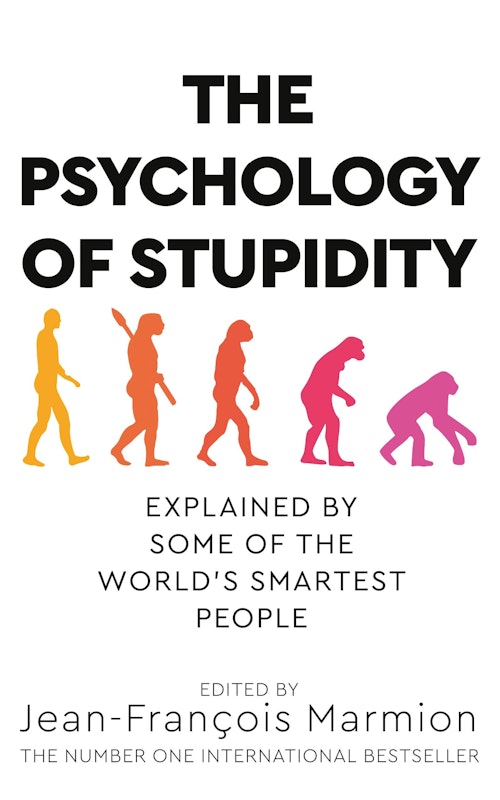
Nonfiction books are books that deal with objective reality. They do not invent people, events, discoveries, or objects for the purpose of the story, and they attempt to be as faithful to the actual object of description.
Some great nonfiction books include The Immortal Life of Henrietta Lacks, The Rise and Fall of the Dinosaurs, and Uncomfortable Conversations with a Black Man.
Nonfiction books are repositories of human knowledge. They are great for learning about the world, making connections, and building upon them. Imagine if every biologist had to start by researching basic cells to get to the point they want to research – we wouldn’t get anywhere if knowledge weren’t recorded in nonfiction books.
Types or genres of nonfiction books include historical nonfiction, life writing, journalism, travel and self-help guides, reviews, and commentaries.
How we ensure our content is accurate and trustworthy?
At StudySmarter, we have created a learning platform that serves millions of students. Meet the people who work hard to deliver fact based content as well as making sure it is verified.

Gabriel Freitas is an AI Engineer with a solid experience in software development, machine learning algorithms, and generative AI, including large language models’ (LLMs) applications. Graduated in Electrical Engineering at the University of São Paulo, he is currently pursuing an MSc in Computer Engineering at the University of Campinas, specializing in machine learning topics. Gabriel has a strong background in software engineering and has worked on projects involving computer vision, embedded AI, and LLM applications.
Get to know Gabriel